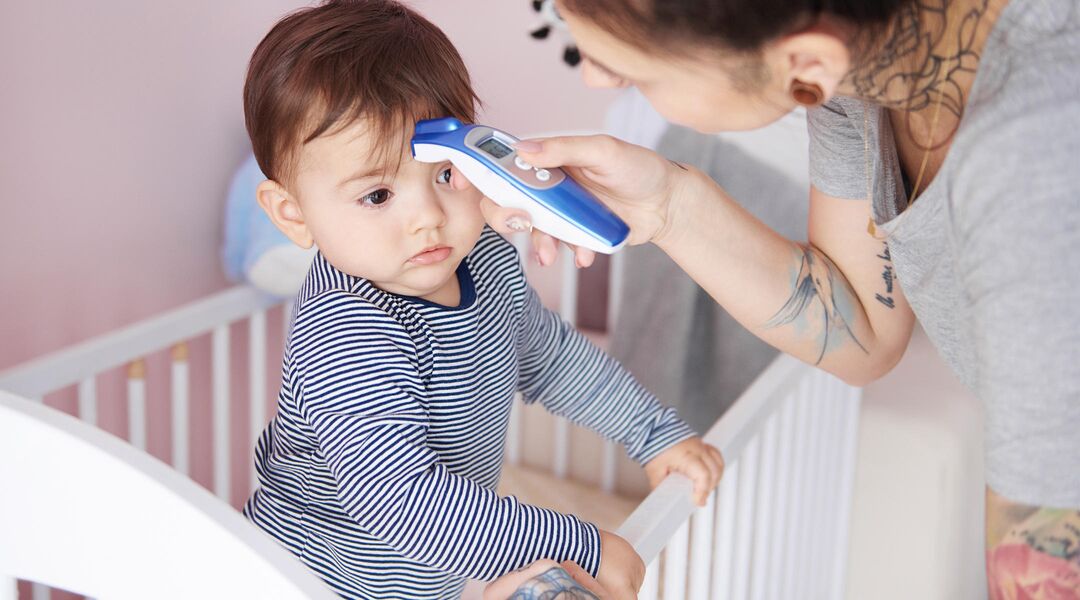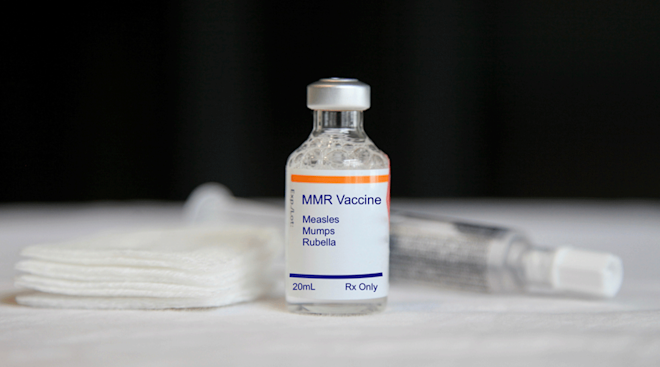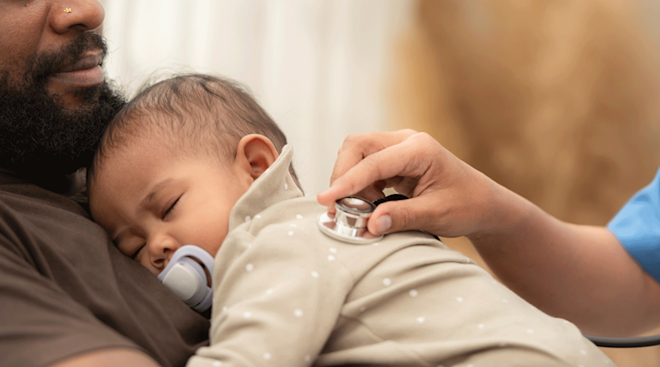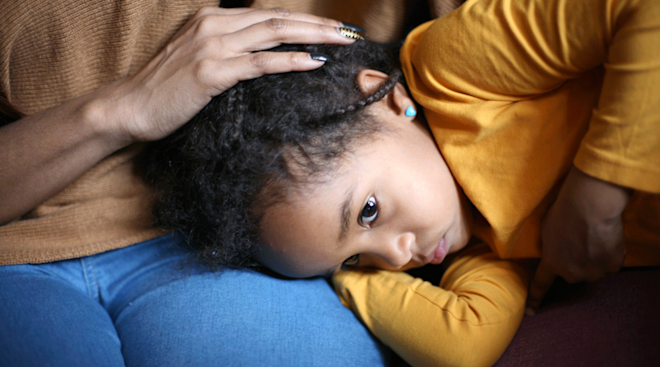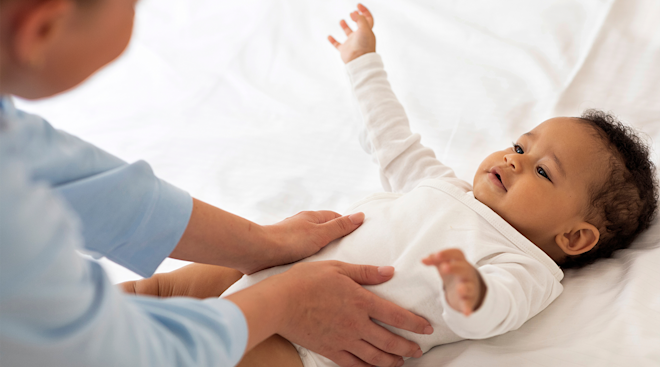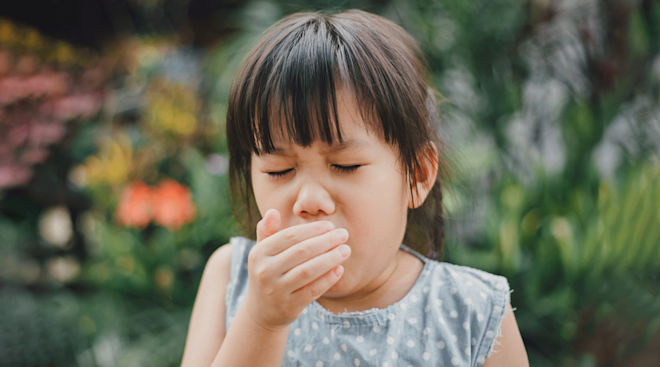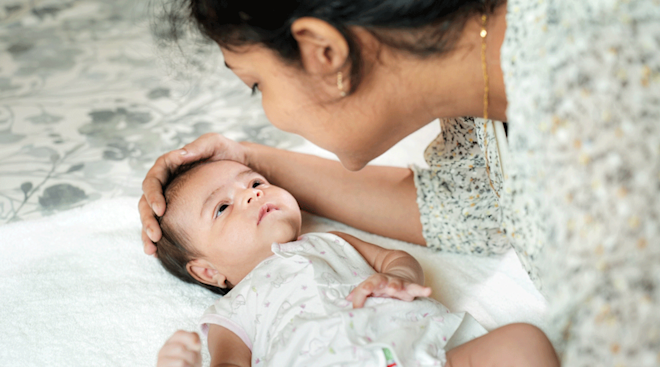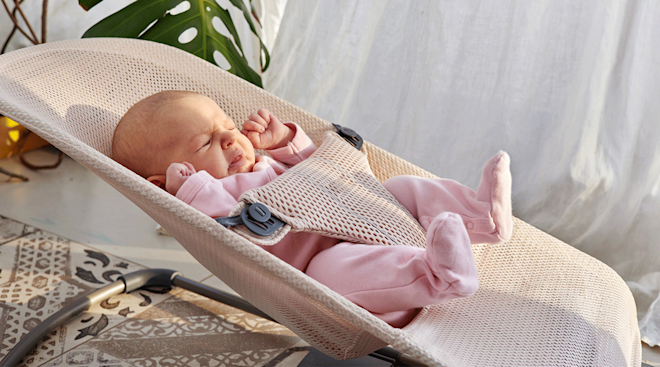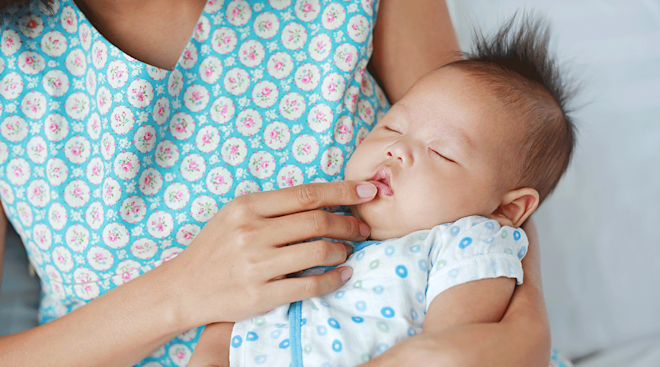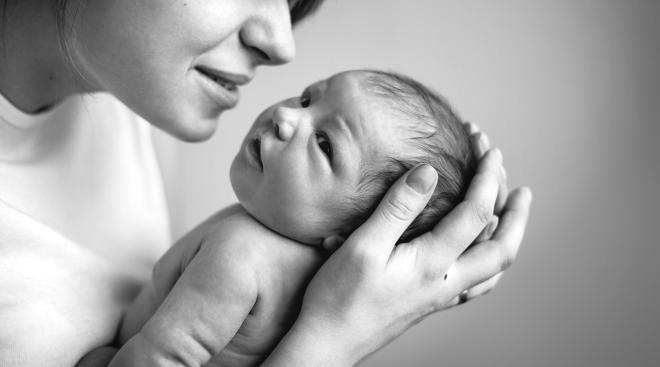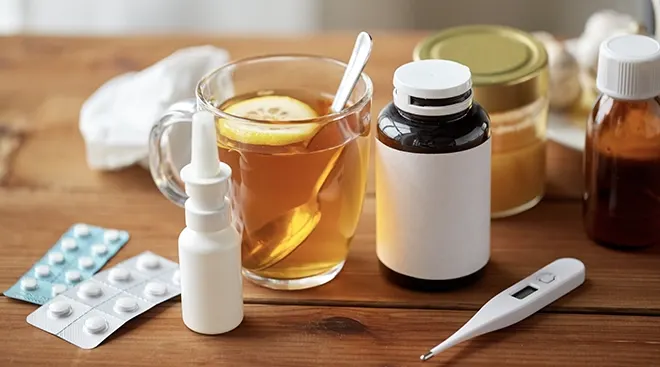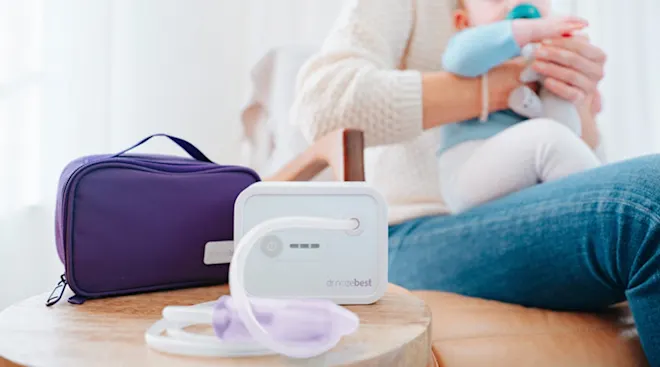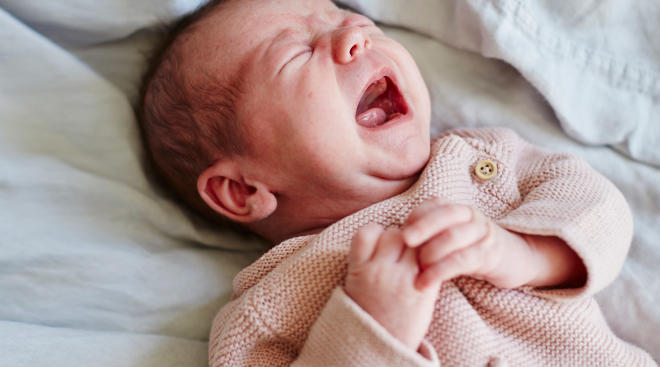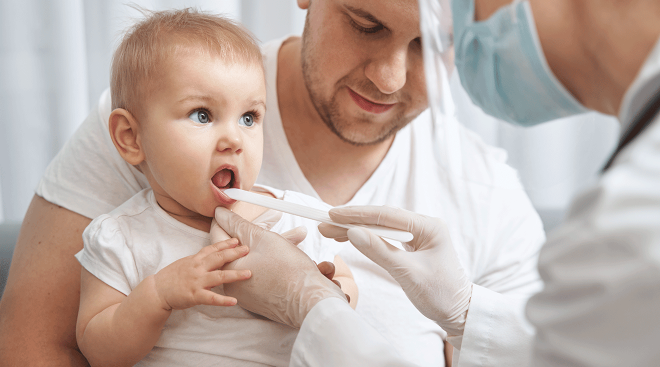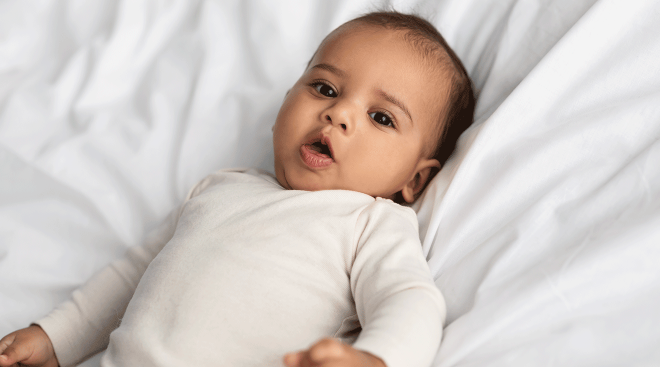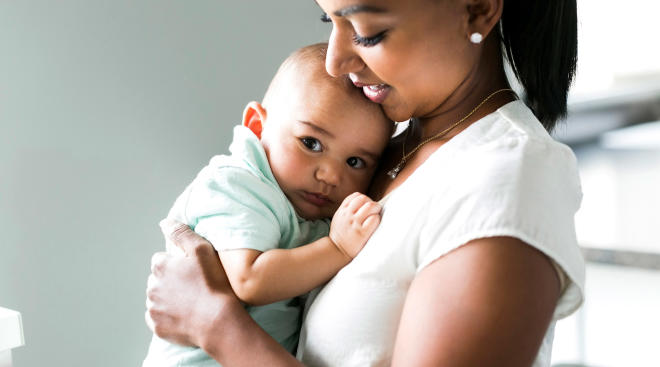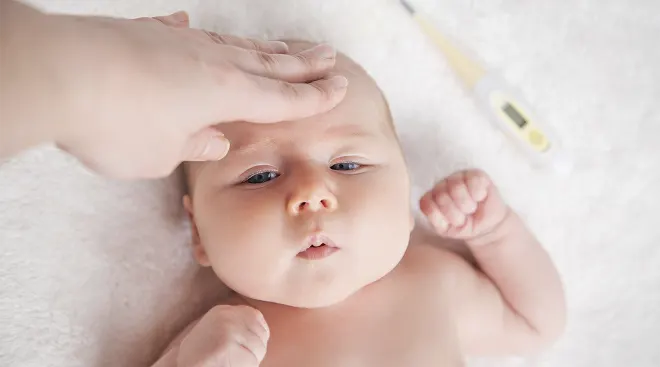Ask the Pediatrician: What Should I Do When Baby Has a Fever?
Meet Dina DiMaggio, MD, and Anthony F. Porto MD, MPH, official spokespeople for the American Academy of Pediatrics and the co-authors of The Pediatrician’s Guide to Feeding Babies and Toddlers. Each month, they’ll write about the latest AAP guidelines, studies and seasonal issues affecting babies and toddlers. Follow them on Instagram @pediatriciansguide.
It is full-blown winter, folks! In tandem with the colder weather, the no. 1 call we are receiving (by far) is what to do when a child has a fever. We know how scary it can be, so answer the top questions parents ask us about this important topic—and dispel some myths along the way.
A child’s normal body temperature , often around 98.6° Fahrenheit, can vary during the day, with the highest temperatures occurring during the evening hours. When body temperature rises to a rectal measurement of 100.4° Fahrenheit (38° Celsius) or higher, you have a fever on your hands. (Remember before taking a temperature to have your baby unbundled and undressed for a few minutes, otherwise you may get a falsely high reading).
Fever in and of itself is not alarming to pediatricians and a high fever does not automatically mean your child has a serious infection. We even tell parents that fever is our friend (!), because it alerts us that something is going on in the body and that the brain is raising the body’s temperature to help fight off an infection or other illness, such as:
a) A viral infection, like a cold or the flu. This can cause a fever that can last for three to five days and does not require and antibiotic.
b) A bacterial infection, like pneumonia or an ear infection. Because these are caused by bacteria, your child will need an antibiotic to treat the infection and resulting fever.
One of the most common signs of a fever is, of course, if your baby feels hot. But touching your child to see if he or she feels hot is not as accurate as taking his or her temperature. Although there are many thermometers on the market, for young babies, many pediatricians will recommend taking a rectal temperature (if you are unsure how to do so, your pediatrician can help show you how).
Other signs of a fever may include:
- A faster heart rate
- Breathing faster
- Crankiness
- Shivering
- Not acting like him/herself or being “under the weather”
We often hear parents use the term “lethargic” when a child isn’t acting like themselves, but medically speaking, that refers to a much more serious condition. Your child is technically only lethargic if he or she is not making any eye contact, is limp, and is excessively sleepy or hard to arouse. In this case, see a doctor immediately.
If you have a young baby, especially under 2 months old, your pediatrician should be called immediately and you should not treat your baby with any medicine, unless under a doctor’s supervision. Otherwise, to keep your child comfortable, you may give your baby acetaminophen (Tylenol). If baby is older than 6 months old, ibuprofen (Motrin or Advil) is okay. Ask your doctor for your child’s correct dose at your well visits, since the dose is based on your child’s weight.
Don’t forget: Plenty of fluids to prevent dehydration—along with rest and extra snuggles—will also help your baby feel better. We don’t recommend placing a baby in a cold bath, using alcohol, or even ice packs, since these can have adverse effects and make your baby more uncomfortable.
Pediatrician Tip: If your older baby/child has a fever, you can administer a fever reducer without going to the doctor first. We want your child to be comfortable and really do believe you when you say your child has a fever. Also, if your child has a fever and is uncomfortable, there is no need to hold off on giving a fever reducer so that the “fever can fight off the infection”—we are all about making your child feel comfortable and playful again!
You should not hesitate to call your pediatrician if you are ever worried about your child, especially if your baby looks very ill, is excessively sleepy, or irritable despite giving a fever reducer. If your baby is very young (under 3 months old) your pediatrician should be alerted to any fever.
More serious fever symptoms may include (but are not limited to):
-
a stiff neck with headache
-
vomiting
-
light-induced eye aches
-
a bad sore throat
-
ear pain
-
abdominal pain
-
signs of dehydration (such as no tears when crying, dry/cracked lips, not peeing every six to eight hours, sunken fontanelle)
-
limping or not walking normally
-
labored breathing (beyond a stuffy nose)
-
seizure activity
Depending on our child’s age and symptoms, if after giving a fever reducer, your child is back to their normal self, then your pediatrician might not need to see your child right away. If however, the fever lasts for over two to three days—or if you have other concerns—then a doctor’s visit is in order.
Many times children’s fevers can creep up to high temperatures such as 104° or 105°. These high numbers themselves are not harmful, although they can seem scary. If after receiving a fever reducer (we like ibuprofen best for higher fevers, if over 6 months old), your baby is back to his/her playful self, than we become less worried.
Naturally, the fever may rise again after medication wears off; ibuprofen lasts for six to eight hours, while acetaminophen lasts for four to six hours. These medicines will not cure the fever, but will only reduce the temperature for those amount of times until whatever is causing the fever is resolved. You can talk to your doctor about alternating these medicines to keep your child’s fever down.
To answer your worst-case scenario questions: Fever itself does not cause brain damage or damage to other organs, and high fevers do not mean a child will have a seizure. However, febrile seizures, caused by a spike in body temperature, can occur in children between 6 months and 5 years old, only 2 to 5 percent of children ever experience them. Febrile seizures can run in families, and children may look “out of it” while stiffening and/or making twitching movements. The episode usually lasts less than a minute. Although a febrile seizure is understandably a scary experience, thankfully, they are almost always harmless and do not cause any lasting damage. Your pediatrician should still be alerted if your child has a seizure with a fever.
Sources:
About the authors:
Dina works as a board certified pediatrician at Pediatric Associates of NYC and at NYU Langone Medical Center. She has received numerous research awards, along with Patient’s Choice award, compassionate doctor recognition and was featured in the New York Times Magazine as a Super Doctors and New York Rising Star. She is dedicated to educating parents on baby and toddler nutrition and gives talks to parent groups throughout New York.
Anthony is a board certified pediatrician and board certified pediatric gastroenterologist. He is an Associate Professor of Pediatrics and Associate Clinical Chief of Pediatric Gastroenterology at Yale University. He has won numerous awards including the Norman J. Siegel Award at Yale University for leadership and providing outstanding clinical care as well as Physician of the Year during his time at Morgan Stanley Children’s Hospital. He has been named Castle Connolly Top Doctors since 2012. Anthony is interested in nutrition, especially in the care of children with difficulty gaining weight, feeding issues, and celiac disease. He loves teaching and educating parents and gives lectures to parents throughout New York and Connecticut.
Published January 2017
Please note: The Bump and the materials and information it contains are not intended to, and do not constitute, medical or other health advice or diagnosis and should not be used as such. You should always consult with a qualified physician or health professional about your specific circumstances.
Navigate forward to interact with the calendar and select a date. Press the question mark key to get the keyboard shortcuts for changing dates.
































